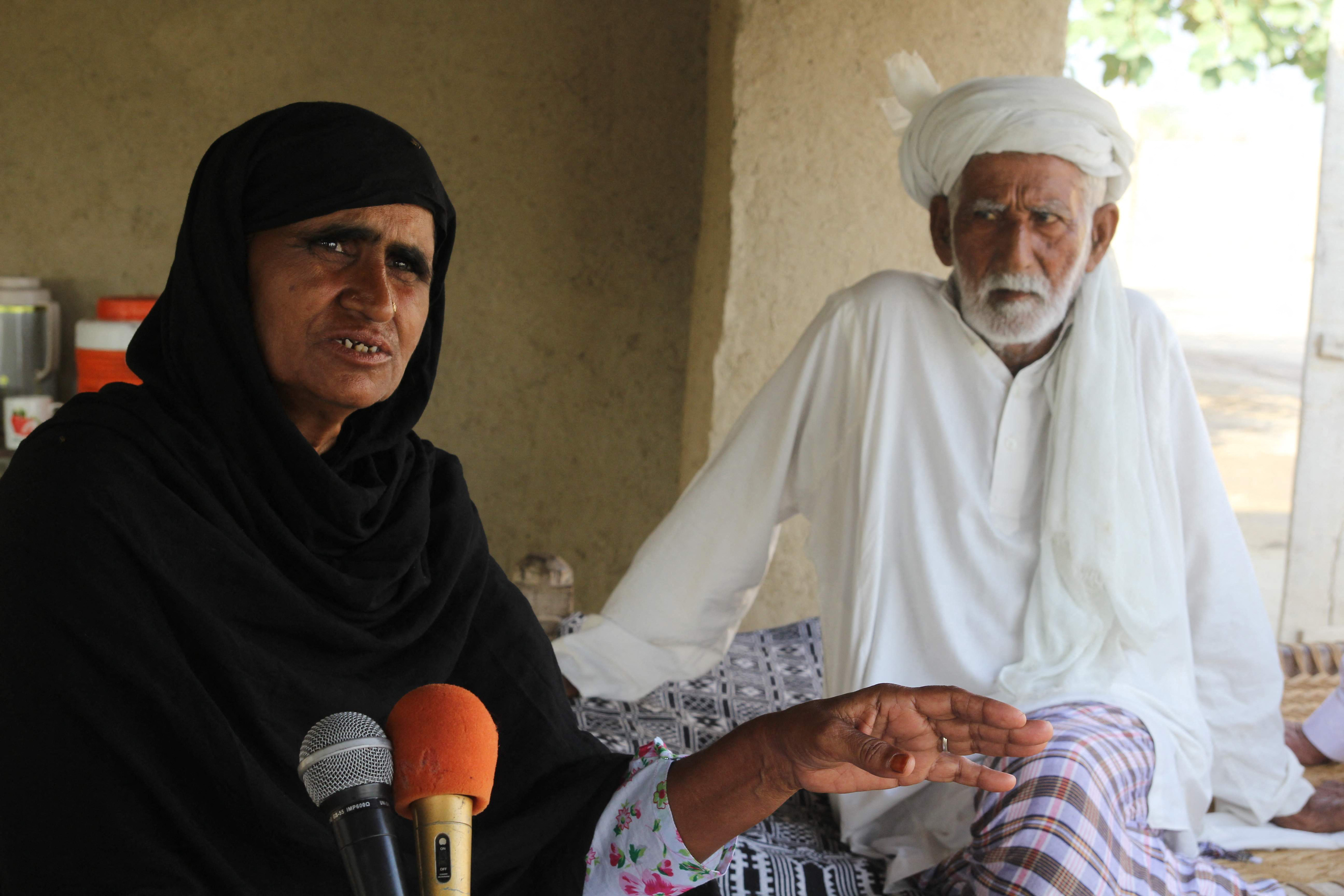In the summer of 2016, Pakistan’s “Kim Kardashian” was found strangled to death in her home in the outskirts of the country’s Multan city. Days before, the model and social media star Qandeel Baloch had appealed to the state for police protection from death threats she was receiving online. The 26-year-old was frequently targeted by online abuse because her content was seen as too “risque” in the conservative Muslim country.
Two days after Baloch’s death, her brother Muhammad Waseem was arrested for her murder. At a press conference, he said that he had drugged and strangled his sister because she had “brought dishonor” to the family and that he was “not ashamed at all” of his actions. He was convicted and sentenced to life imprisonment in September of 2019.
Videos by VICE

Now, barely three years later, Waseem has been acquitted by a Lahore appeals court. The reason for the acquittal is unclear, as details of the verdict are yet to be made public. Waseem’s lawyer, Sardar Mahboob, however revealed some details regarding the case. According to Mahboob, Baloch’s father, who was the main complainant in the case, died recently, while other major witnesses had retracted the statements they made during the trial. Waseem is expected to be released as early as this week.
The verdict has shocked activists and lawyers in the country, who believe the state has failed to uphold justice. “It raises questions about where the state and the prosecution was during the appeal process, when they were party to this case and said that they would fight for Qandeel,” lawyer Nighat Dad told VICE World News.
Sanam Maher, a Pakistani journalist who wrote a book about Baloch’s life and death, wrote on Instagram, “After today’s verdict, we may ask, ‘Who killed her?’ Nobody, it seems. In accepting that answer, we are all complicit in the crime of failing to protect women.”
In 2016, Baloch’s murder sparked widespread condemnation in Pakistan and quickly emerged as one of the highest-profile honor killing cases in the country. In Pakistan, some men murder female relatives over perceived infractions of the family’s “honor.”
According to Human Rights Watch, around 1,000 women in the country are murdered each year in honor killings. However, actual numbers are believed to be higher than what is reported.
The outrage over Baloch’s murder drove the government to amend laws that previously allowed victims’ families to pardon perpetrators of honor killings. The amended law now prevents families from granting reprieves. However, because it is up to the court judge to determine whether a case is an honor killing, killers may appeal and claim a different motive, thus removing the case from the coverage of the amended law on honor killings, which then allows the victim’s family to issue a reprieve. It is uncertain whether this tactic led to Waseem’s acquittal.
Baloch grew up in the heart of rural Pakistan and shot to fame in 2013 after her audition for the reality show Pakistan Idol went viral. She soon garnered online stardom and notoriety for her provocative pictures and videos. At the time of her death, Baloch had nearly 1 million followers on Facebook. She is now celebrated as a feminist cultural icon in Pakistan.
Initially, Baloch’s elderly parents demanded punishment for their son’s actions, but they eventually changed their minds and sought his pardon. Baloch financially supported her parents, and they plunged deeper into poverty after her death.

“In a society that takes great pleasure in the punishment of women who break the rules, it should come as no surprise that each suspect in this case has been acquitted. Waseem may now walk free while Qandeel [Baloch] was condemned for stepping outside the bounds of what is deemed as ‘acceptable’ behavior for women in Pakistan,” Maher wrote.
The verdict elicited an outpouring of anger and grief in Pakistan. “It has given a very dangerous message to the masses that nothing is greater than honor,” said Dad, the lawyer. “This has given the message that if you kill a woman in the name of honor, you will stay in jail for a few years and then be out. It makes me scared for the women of this country, especially the ones who don’t have access to justice.”
Follow Rimal Farrukh on Twitter.




